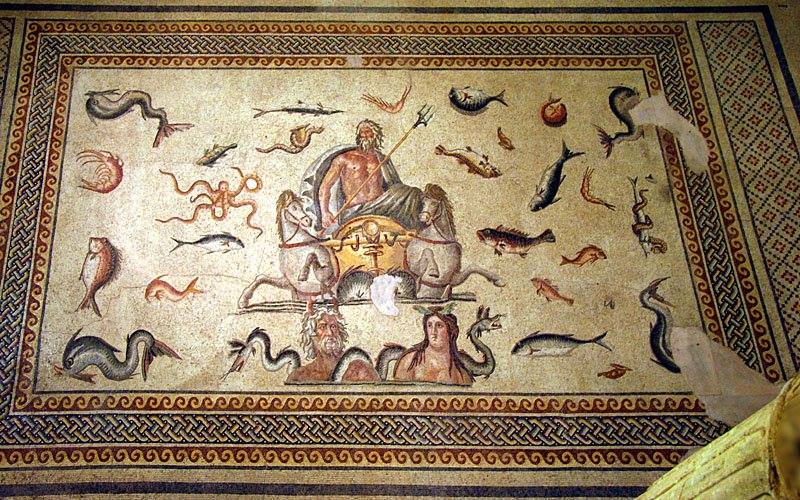
It should be said early on that Book 3 of Metamorphoses is largely about coming to terms with the Dionysian. This strange, late-born god, a descendant of the line of Cadmus, turns out to be pivotal to the fate of the House of the son of Agenor, and to his mighty city, Thebes.
So as we read the tales that follow the scene of Cadmus and the Serpent, we should be thinking about how they relate to the central antagonism of the book. This antagonism comes out in thematic form with the appearance of Pentheus (around line 510), son of Echion, strongest of the Spartoi, and of Agave, daughter of Cadmus.
Immediately before we see Pentheus in action, Tiresias has warned him that his fate hangs upon how he responds to the advent of Bacchus/Liber:
unless you think him worthy to be done honour in your sanctuaries, you will be scattered, torn, in a thousand pieces, and stain your mother, and her sisters and the woods themselves with your blood. (Kline)
 The name Pentheus as Dionysus and Tiresias both point out, means "Man of Sorrows" and derives from πένθος, pénthos, sorrow or grief, especially the grief caused by the death of a loved one; even his name destines him for tragedy. Pentheus's son, Menoeceus, fathered Jocasta, making Oedipus the great-great grandson of Echion, and great-great-great grandson of Cadmus.
The name Pentheus as Dionysus and Tiresias both point out, means "Man of Sorrows" and derives from πένθος, pénthos, sorrow or grief, especially the grief caused by the death of a loved one; even his name destines him for tragedy. Pentheus's son, Menoeceus, fathered Jocasta, making Oedipus the great-great grandson of Echion, and great-great-great grandson of Cadmus.Pentheus takes his orientation, his vision of the sacred, from his own origins -- origins which, if one has been paying attention, have been in question ever since Cadmus rather mindlessly followed the first pretty cow that came along. Here he confronts the masses of revelers, contrasting their unwarlike, babbling, feminine energy of the masses with the savage, solitary warlike "father" of Thebes, the dragon:
Remember, I beg you, from what roots you were created, and show the spirit of the serpent, who, though one alone, killed many. He died for his spring and pool, but you should conquer for your own glory! He put brave men to death, but you should make craven men run, and maintain the honour of your country! If it is Thebe’s fate to stand for only a short time, I wish her walls might be destroyed by men and siege engines. . .. But now Thebes will be taken by an unarmed boy, who takes no pleasure in fighting, or weapons, or the use of horses, but in myrrh-drenched hair, soft wreathes of leaves, and embroidered robes woven with gold.We can see this speech as central to Book 3 - the moment when a character, confronted with something radically new, turns back to the sacred tale of the origins of his race and city with which the book began in order to affirm his own racial identity (show the spirit of the serpent), his nature, his way of being in the world.
If we see this as the core concern of Book 3, then the tales of Actaeon, Semele, Tiresias and Narcissus can be read as variations on a theme we could call "losing the self: dangerous encounters with the Other" -- even, or especially, when the Other turns out to be oneself:


No comments:
Post a Comment